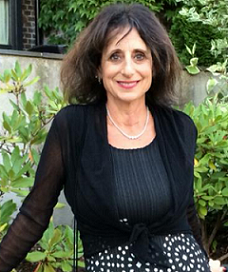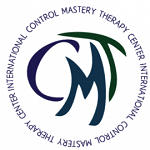 Control Mastery theory assumes that the patient’s problems are rooted in the grim, constricting pathogenic beliefs that the patient acquires in the traumatic experiences of childhood. The driving force behind the psychotherapeutic process is the patient’s conscious and unconscious desire to recover the capacity to pursue life goals by gaining control and mastering self-destructive patterns of thoughts and behaviors.
Control Mastery theory assumes that the patient’s problems are rooted in the grim, constricting pathogenic beliefs that the patient acquires in the traumatic experiences of childhood. The driving force behind the psychotherapeutic process is the patient’s conscious and unconscious desire to recover the capacity to pursue life goals by gaining control and mastering self-destructive patterns of thoughts and behaviors.
Control Mastery theory, based on Freud’s later writings, emphasizes a child’s urgent need to adapt to reality. His best strategy for doing this is to get along with his parents. Therefore he is motivated to maintain ties to his parents. He needs his parents for survival, safety, love, and security. In order to maintain these ties a child works to learn as much as possible about his parents. He infers the moral and ethical principles, which govern his parents’ lives, which they practice in relation to him, and which they expect him to practice in relation to them. A child must know his parents’ whims, needs, and desires. He examines his parents closely in order to sort out what they want, expect, and will allow. Because for a child it is a matter of life and death that he gets along with his parents, he condemns inside himself any impulses, attitudes, goals or affective states which he believes might threaten his ties to them.
Recent articles and papers:
What is Control Mastery Theory- The Dance of Psychotherapy
( a paper written by Jessica Broitman and presented by Jessica Broitman and Ginger Rhodes Cuba 2016)
Control Mastery theory was developed by Joe Weiss (1924 – 2004) and researched by Hal Sampson (1925 -2015) and the many theoreticians involved with SFPRG. CMT offers one a foundation, scaffolding or container for understanding how psychotherapy works. Weiss suggests that patients enter treatment with a (unconscious) plan to mastery (overcome or deal with) the traumatic events, which leads to their symptoms and inhibitions. His straightforward concepts and structure offer an elegant platform from which to begin the dance of psychotherapy.Read Full Article
Brief Biography of Dr. Broitman
Currently a psychoanalyst in private practice since 1980, Dr. Broitman was born in New York City, to Adeline and Harold Broitman. She attended the University of Colorado, Boulder, where she got her BA in 1975 in Art, Religion, and Psychology, and an MA in 1977 in Counseling Psychology. As member of the Intensive Treatment Team of the Boulder Mental Health Center, she ran the Gordon Beyer project, one of the first residential treatment programs for chronic schizophrenics in the country. While in Boulder, she met her husband, Gibor Basri, (a former Vice Chancellor) who is currently a Professor of the Graduate School in Astronomy at UC Berkeley.
In 1980 they moved to the Bay Area, where she became the Program Coordinator for the Creative Living Center, another residential treatment program. She became a licensed Marriage, Family, and Child Counselor in 1980. Dr Broitman attended the Wright Institute in Berkeley, where she obtained her PhD in 1985 and became a licensed Psychologist in 1987. Dr. Broitman joined Joseph Weiss, Control Mastery Theory and the Mt Zion Research Group in 1980. She formalized the San Francisco Psychotherapy Research Group as a non-profit organization in 1993. She is President emerita of SFPRG.
Dr. Broitman began study at the San Francisco Psychoanalytic Institute in 1996, and graduated as a Psychoanalyst in 2001. She currently has a private practice doing psychotherapy and psychoanalysis in Berkeley. She was instrumental in the initiation of SFPRG’s Psychotherapy Training Center and Clinic, and served as its Executive Director for 15 years. In 2017 she help create the International Control Mastery Therapy Center (CMTCenter) and currently serves as the President of the CMTCenter. She frequently lectures on Weiss’ Control Mastery Theory worldwide.
Dr. Broitman has become an expert on non-verbal learning disabilities (NVLD), and recently co-authored 2 books on that topic for practitioners and parents. She is the co-author of Nonverbal Learning Disabilities in Children: Bridging the Gap Between Science and Practice (2011) and the co-editor of Treating NVLD in Children (2013) as well as numerous chapter and articles. She has worked with families who have learning-disabled children for more than 15 years. She is currently involved in several research projects concerning the treatment and understanding of NVLD and has a special interest in helping professionals and families understand and treat this disorder. She is available for consultations and can be reached at: drjess@comcast.net.
For more information on her work on NVLD see: http://w.astro.berkeley.edu/~basri/Broitman_Home/nvld/
For a half-hour video on NVLD featuring the authors, please see: https://www.youtube.com/watch?v=vymdZUuB-T4&feature=youtu.be
Her resume can be found here: http://w.astro.berkeley.edu/~basri/Broitman_Home/Jessica_CV.pdf
Her son, Jacob Avram Basri, was born in 1991. He is a graduate of Sarah Lawrence College (2013) and now a director/actor living in New York City.
